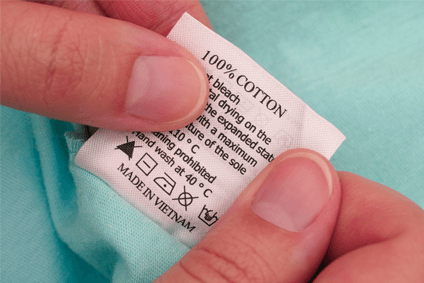
The EU-Vietnam Free Trade Agreement (EVFTA) is set to be signed on Sunday (30 June), after clearing another hurdle on its way to coming into force.
The EU-Vietnam trade and investment agreements were approved today (25 June) by the Council of Ministers – paving the way for the pacts to be signed by EU Commissioner for Trade Cecilia Malmström, and Romanian Minister for Business, Trade and Entrepreneurship Stefan-Radu Oprea, in Hanoi this weekend.
The EVFTA is split into two separate agreements: a free trade agreement, which only requires the Council’s approval and the European Parliament’s consent before it can enter into force; and an investment protection agreement which must go through national ratification procedures in all member states before it can enter into force.
Finalised in December 2015, the trade deal is the most ambitious ever concluded between the EU and a developing country, and will eventually eliminate virtually all tariffs on goods traded between the two sides.
For textiles and clothing, EU import duties imports of these products from Vietnam will be eliminated over an eight-year phase-out period once the agreement comes into force.
Garments produced in Vietnam from fabrics made in South Korea or other ASEAN countries with which the EU has a free trade agreement will also qualify for duty-free treatment.
How well do you really know your competitors?
Access the most comprehensive Company Profiles on the market, powered by GlobalData. Save hours of research. Gain competitive edge.

Thank you!
Your download email will arrive shortly
Not ready to buy yet? Download a free sample
We are confident about the unique quality of our Company Profiles. However, we want you to make the most beneficial decision for your business, so we offer a free sample that you can download by submitting the below form
By GlobalDataThe EVFTA is expected to expand Vietnam’s textile and apparel exports to the EU market even further.
The country is already the EU’s second-largest trading partner within the Association of Southeast Asian Nations. In 2017, the EU imported EUR3.34bn worth of clothing from Vietnam, accounting for 9% of total clothing imports and up 5.7% on the previous year. Between 2014 and 2017, clothing shipments into the EU from Vietnam have jumped 42%.
According to the re:source by just-style strategic sourcing tool, apparel exports from Vietnam to the EU were subject to an average tariff rate of 9.4% for knitted apparel (HS chapter 61) and 9.2% for woven apparel (HS chapter 62) last year.
Vietnam is also a beneficiary of EU’s GSP programme, which offers preferential duty rates for a limited number of tariff lines.
However, there are also concerns over capacity and labour in Vietnam’s apparel and textile industry once the EVFTA and the Comprehensive and Progressive Agreement for Trans-Pacific Partnership (CPTPP) trade pact, of which Vietnam is also a signatory, come into force. As reported on just-style last month, Vietnam is seeking to boost fabric production so that its domestic garment makers can prosper from the “yarn-forward” rules of origin under the CPTPP trade deal.
Added to this, there is extra pressure on the country as US brands and retailers shift sourcing away from China to Vietnam over US tariff fears.
Next steps
After the agreements have been signed by the EU and Vietnam they will be presented to the European Parliament for consent. Once the European Parliament has given its consent, the trade agreement can be officially concluded by the Council and enter into force. The investment protection agreement will take longer as it will need to be ratified by member states.



